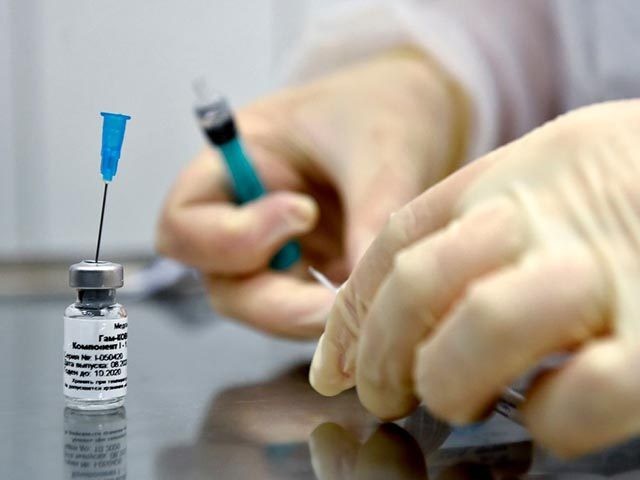Many countries face “unprecedented” pressure to refuse Russia’s Sputnik V coronavirus vaccine candidate, the Kremlin alleged on Tuesday.
“In many countries the scale of pressure is quite unprecedented … such selfish attempts to force countries to abandon any vaccines have no prospects,” Kremlin spokesman Dmitry Peskov told reporters on March 16.
“We believe that there should be as many doses of vaccines as possible so that all countries, including the poorest, have the opportunity to stop the pandemic,” he said.
Peskov made the remarks after he was asked at a regular press briefing to comment on a recent U.S. government report which appeared to confirm that the U.S. attempted to dissuade Brazil from purchasing doses of the Russian-made Sputnik V.
The report, published on the U.S. Department of Health and Human Services (HHS) website in January, outlined the U.S. Office of Global Affairs’s (OGA) efforts to combat “malign influences in the Americas.”
“Examples include using OGA’s Health Attache office to persuade Brazil to reject the Russian COVID-19 [coronavirus] vaccine,” the report read.
Peskov declined to comment specifically on the HHS report at Tuesday’s press conference, but dismissed foreign pressure against the use of Russian-made coronavirus vaccines as “egotistical,” according to a translation of his remarks by the Moscow Times. The Kremlin said that Russia was against politicizing coronavirus vaccines, adding that it supports “as many as possible” vaccines on the market.
The official Twitter account for Russia’s Sputnik V coronavirus vaccine candidate posted a statement on Monday directly addressing the HHS report:
Moscow’s Gamaleya Institute developed Sputnik V and Russia registered the shot in August 2020 as the first vaccine candidate to be approved anywhere against the Chinese coronavirus. Russia’s Health Ministry allegedly broke its own protocols to rush Sputnik V through approvals for emergency use in the country before it had cleared stage III clinical trials and without releasing data on its efficacy rate or safety. Both India in January and China on Monday mimicked this premature debut for domestically-made coronavirus vaccine candidates. Late-stage clinical data for Russia’s Sputnik V was eventually published by the Lancet medical journal in February. The vaccine candidate has a 92 percent efficacy rate against the Chinese coronavirus according to the findings.
Russia has offered Sputnik V to more than 40 other countries, many of whom have accepted the offer and ordered doses of the vaccine candidate as part of their coronavirus inoculation programs. Slovakia’s health minister was forced to resign on March 11 after bypassing the country’s four-party coalition government to order two million doses of Sputnik V in late February before it was approved for emergency use in the European Union (E.U.) by the governing bloc’s health regulators. One member of Slovak’s own governing bloc threatened to quit in protest of the Sputnik V purchase while another demanded a leadership reshuffle.
“Two coalition parties made my resignation a condition for them to stay in the coalition. In such a situation, I think there was no point arguing. … I am not glued to my seat (at the ministry),” Slovak Health Minister Marek Krajci said at a press briefing held on March 11 to announce his resignation.
Slovak Prime Minister Igor Matovic, an ally of Krajci who ordered the Sputnik doses at his urging, also spoke at the press conference. Matovic said Krajci’s resignation would be “gradual” over the next few weeks and expressed “hope that the health minister would only leave his post at a time when the Sputnik V vaccination campaign would be in full swing,” Russia’s state-controlled RT news network reported on March 11.

COMMENTS
Please let us know if you're having issues with commenting.